There are serious discussions about the use of “tactical” nuclear weapons. Is a limited nuclear war possible? How can we avoid it? Col. Lawrence Wilkerson on theAnalysis.news with Paul Jay.
Paul Jay
Hi, I’m Paul Jay. Welcome to theAnalysis.news. Please don’t forget there’s a donate button, a subscribe button, and all the buttons. Most importantly, come on over to the website and get on our email list. From time to time, Youtube either doesn’t let our subscribers know we have a new video, or they take us down. The most reliable way to watch theAnalysis is on the website, and from the email list, you will get alerted. Be back in just a few seconds with Larry Wilkerson to discuss the dangers of nuclear war and the crisis/conflict war against Ukraine.
There’s a word that’s missing in all this conversation about nuclear war. There’s a lot of discussion about tactical nuclear weapons, low-yield nuclear weapons as if it’s just another weapon. The word that’s missing, and that’s the word that comes from the Doctor Strangelove movie or the [Daniel] Ellsberg book; that word is doomsday machine. There actually are doomsday machines. The U.S. and the Russians both have it. The talk of tactical nuclear weapons as if it somehow doesn’t lead to a greater nuclear war is shocking and amazing, but here we are.
So now joining us to discuss this issue is Larry Wilkerson. Colonel Wilkerson was the Chief of Staff for Colin Powell at the State Department. He worked with Powell at the Joint Chiefs. He’s a regular contributor here on theAnalysis and many other media platforms. Thanks for joining us, Larry.
Lawrence Wilkerson
Good to be with you, Paul.
Paul Jay
So if I understand it correctly, in both the American and Russian nuclear war strategy, war plans, if you start to lose a conventional war— in the American case to the Russians or the Russians to the Americans— it automatically triggers nuclear weapons, especially if a tactical nuclear weapon is used. So, where does that lead? What do you make of this conversation about nuclear war without the word doomsday machine?
Lawrence Wilkerson
I don’t know if it’s true about the United States in terms of being very public and upfront about this. It certainly is about the Russians. They have published military doctrine that asserts what you just said. I suspect it’s true about the United States, too, because of what I’m hearing and what we’re talking about regarding a possible nuclear posture review. Revision, if you will, for the [Joe] Biden administration. The physical evidence of that is this submarine launch cruise missile nuclear. That is to say, a submarine would launch a tactical nuclear missile. This is in response, I assume, to the Russians saying they would use it.
More disconcerting than that, and to your point and to my grave concern, I’m hearing military officers talking about the utility of nuclear weapons on the battlefield, and probably worse because we know how these ideas sort of gestate from think tanks. I’m seeing and hearing people writing and talking about it in think tanks. You even have people like Victoria Nuland’s husband, who essentially tells the rest of us that we are just shrinking violets because we won’t use the bold threat of using nuclear weapons.
For example, in the Ukraine situation, vis à vis [Vladimir] Putin, to make him understand that if he does, we will. This is the kind of collaboration that you know well, having talked to Dan Ellsberg. We tried to tamp it down and eventually thought we’d eradicated it from our lexicon during the Cold War because we knew what would happen. From simulation after simulation, from war game after war game, we knew how those things turned out. We had a saying in the military; if you use one, you’re going to use them all or enough to destroy the globe.
At that time, I was looking these figures over again today. I got my papers out from when we were talking with the Soviets, at the time, about helping them destroy their warheads. We had over 35,000 nuclear warheads. Now, according to the Arms Control Association, we’re down to somewhere below 15,000, maybe around 13,000. I think that’s a little off. At any rate, we’ve really come down majorly. Now we’re talking about modernizing, and we’re talking about doing things with the systems, making them better, making them more usable in some cases. There’s only one thing that makes a nuclear weapon more usable: a general officer on the battlefield who recommends to the President that the situation demands the use of a nuclear weapon. It isn’t usable in any other sense because we know, I think, from 70 years of doctrinal, look, if you will, we know that you probably are going to use them big time if you use them at all. As you well know, that’s the end. That’s over. We don’t even have to worry about waiting for the climate crisis to do us in. We will do ourselves with these very deadly weapons.
Paul Jay
Ellsberg said when he was there, meaning working for the RAND Corporation as an Advisor to the Pentagon. This is in the late ’50s and early ’60s on nuclear war strategy. It certainly was American nuclear war policy/planning, he says, I think if I get it right, if one American brigade was in direct military conflict with a Russian brigade in Eastern Europe and was losing, that’s enough to have triggered an all-out nuclear attack on the Soviet Union. Not only on the Soviet Union and every major city in it but every major city in China as well. Even if China wasn’t involved.
Lawrence Wilkerson
Right.
Paul Jay
There’s an interesting quote recently from a retired general. There’s a nuclear posture review going on, and you talked about it. The woman that was supposed to lead it apparently wanted to discuss taking first-strike off the table, at least discuss it. The Pentagon was so opposed to discussing it that they lobbied to get rid of this woman, and they lobbied successfully. She’s no longer leading this review.
Lawrence Wilkerson
I think that’s accurate.
Paul Jay
At the time, there was a quote, I believe, from a retired Air Force General who used to be in charge of nuclear weapons planning. His quote was, “the strategies have worked fine for the last 60 years. We don’t need to change it now.” Well, if he’s referring to the doomsday machine, hair-trigger alerts and all that goes with it, then maybe things really haven’t changed at all. The doomsday machine is as much in place as it always was.
Lawrence Wilkerson
No, I think we’re back to a time where we’ve forgotten it. It is like it never happened. It’s like the Cold War experience, the Cold War doctrine, the Cold War escalation theory, the Cold War experience with nuclear weapons, Berlin, for example, and that hot summer of 60/61, and then Cuba in 62, when we came within a hairsbreadth of potentially using strategic nuclear weapons. They’ve forgotten.
My students look at me with querulous looks on their faces. I handed out a pamphlet that L.B.J. [Lyndon B. Johnson] signed. It’s a pamphlet that the President of the United States signed, telling you how to build a bomb shelter in your backyard and what to stock in it. This is lost. It’s gone. No one has any memory of this in Europe, in America, indeed, probably any place in the world. The leaders from that time are gone.
We now have a whole new experience with modern militaries and militaries that can get caught in situations where they are in severe duress, contemplated and war planning. Your idea that Ellsberg presented that our brigade might be in trouble was facilitated by the fact that we had things like Davy Crocketts, ADMs and other nuclear weapons that were right there on the front lines, so to speak, with the units. Yes, the doctrine was probably, as we said at the time, chop them down to the military commander in peril and then use could be made of them.
Most people don’t know, and if you read One Minute to Midnight, you find out quickly. It’s a very well-researched book. All the archives were opened up in Russia. Some were opened up in Cuba once the Cold War was over. We now know that there were free underground rockets right outside Guantanamo with nuclear warheads on them. The OPCOM [Operational Command] of those weapons was chopped down to the Russian regimental commander.
Had we launched what Curtis LeMay, for example, wanted to launch an invasion off the island of Cuba. It wasn’t just Curtis. It was quite a few military leaders. That was the target, the invasion fleet. They were going to put ten tactical nuclear weapons on top of the invasion fleet. There were harrowing moments that weren’t even known until the archives were open, and we saw these things. This is where we are again. There is a reason some very qualified, competent people have been writing that we may be closer to midnight, as it were. Two Minutes to Midnight, that was the name of the book. We may be closer than we were in Berlin or Cuba today because of this facility with which people like [Robert] Kagan at Brookings are writing and talking about using nuclear weapons.
Paul Jay
The world came very close to nuclear war because President [Yuri] Andropov thought in 1983 that [Ronald] Reagan was planning a first strike. It just happened that there was a day, one day of the year, where the radar would hit the moon, bounce back, and look to the Russian computers as if they were American missiles. If it wasn’t for this one guy in the radar station, who knew Andropov was on high alert and expecting an attack from the Americans. He didn’t tell Andropov. He just decided not to and waited to see how real it was. If he hadn’t done that, we wouldn’t be here talking about this.
Lawrence Wilkerson
There are so many minutes like that. You know the one about Will Perry. Will Perry writes about it in his book, The Button. It’s 3:00 A.M. in the morning, and he gets a call from the watch officer in the National Military Command Center. He tells him the launch has been made. Perry says, can you confirm that? He says, yes, I will do that. Perry says I have three minutes to call the White House. Three minutes. He’s getting ready to call the White House on a secure phone in his bedroom. The watch officer calls back and says, Sir, I’m so sorry. An exercise tape was left in the machine. When I turned the machine on, it played, and I thought it was a legitimate strike.
Paul Jay
So at a time of such tension over the invasion of Ukraine, as far as I can make out, unless there’s some backchannel of some sort, the Russians and Americans are barely talking to each other. I saw one report that some of the senior American military leaders were trying to get their vis à vis in Moscow to talk to them just to make sure there wasn’t a mistake made. The Russian military leadership didn’t want to talk to them. Now, I don’t know the truth of that, but it wouldn’t take much for Putin, and it wouldn’t take much for NATO, Biden and a NATO radar station to interpret something coming in the worst way.
Lawrence Wilkerson
It wouldn’t. All these systems are fallible. When you think they’re infallible, or you think more and more that they’re infallible, then that’s when they’re really fallible. More frightening to me right now, and I come back to this a lot because of what’s happening in Ukraine. I think Putin has principally accomplished most of his objectives, however clumsily in some cases. He’s now consolidating gains, and he’s focused on destroying the remaining hard elements of the Ukrainian military forces, which he has basically surrounded.
As I listened to a gentleman whom I was referring to earlier with you, this former Finnish Foreign Minister, former Finnish Prime Minister, now a professor at a European University, talks about how he thinks Putin has morphed. He’s watched him. He helped his Foreign Minister for Finland settle the Georgia conflict. He helped forge that peace agreement, which is still in place. He thought that Putin was doing another move like he had done in Georgia, Crimea. Now he’s convinced that Putin has, I won’t say, lost it but is more focused on what you and I talked about earlier, his legacy as the Tsar, the leader of Russia.
He’s desperate now to make sure that everything he’s planning to do and had planned to do is successful and, more importantly, is seen as successful. Of course, we are making every effort, propaganda-wise, disinformation-wise, and on the ground as much as we can with our money to make it look like he’s unsuccessful. The Finnish gentleman said, oh, I hope this isn’t the case; that might lead to the ultimate act by Putin, and that act being using a nuclear weapon. He is not going to accept anything that even looks like a defeat for him. That’s a very worrisome situation, especially when you understand he has 5,000 nuclear weapons at his fingertips.
Paul Jay
So I think when you’re doing any kind of geopolitical analysis, of course, including the conflict in Ukraine, you have to start with how to prevent nuclear war. Then we have to talk about how we deal with the climate crisis. Starting from the point of view of how to prevent nuclear war, there’s this balance between what I think is the right of the Ukrainian people not to be invaded and attacked but the necessity in terms of avoiding nuclear war to give Putin a way out. There doesn’t seem to be a lot of interest on the American side to give Putin a way out. Weakening Russia seems more of an objective than ending the war and reducing the chances of nuclear war and a lot more civilian casualties.
Lawrence Wilkerson
This visit by [Antony] Blinken and the Secretary of Defense to Ukraine, I listened to their remarks, such as they were recorded on several different networks just an hour ago. It didn’t help any. It’s almost like we are going to take you. We’re going to get you. We won’t fight, but we’re going to get you more money. Seven hundred million is coming today. More will come.
Paul Jay
Yes, of course, and who gets most of that 700 million? It mostly goes to American arms manufacturers who get paid to send stuff and to blow it up.
Lawrence Wilkerson
Another question there.
Paul Jay
Yeah, but it occurred to me that maybe Putin’s not as megalomaniacal and out of touch with reality as some people think. Perhaps he’s looking ahead. If you’re going to do this and invade Ukraine, get this land bridge to Crimea, and get control of Donbas, maybe you do want to do this under the watch of the Democratic Party. If you think the Republicans are going to take Congress, and you think you’ve got a good chance of getting a Trump type, if not Trump himself, back in office in 2024. If you do this while the Democrats are in power and the Republicans don’t get blamed for letting it happen, then when a Trump type or Trump gets elected, if so, in 2024, then they’re likely to actually normalize relations with Russia in some way and probably reduce sanctions. When you look at the strength of the Christian nationalists in the United States who really want war with China, not with Putin, who to some extent actually see Putin as a hero because he’s seen as a defender of the Christian faith. He supports Marine Le Pen and other far-right political figures in Europe who are also Christian nationalists in their own way. Maybe this is more of a calculated move. Putin thinks I’ll get away with this because, by 2024, I’ll have a President that will normalize things. We’ll put up with the economic pain in the meantime. We’ll have closer relations with China, and eventually, we’ll have Christian nationalists in power in the United States as well.
Lawrence Wilkerson
You may even be onto something with regard to the midterms. I heard yesterday, this is from someone in the Democratic Party, not my party, the Republican Party. They told me they’re going to lose 50 seats in the House and four to six in the Senate. So it’ll be prepped by that. We’ll have a President who can’t move hardly with regard to the Congress and the legislature. So you’ve got a point.
All appearances right now, it looks like Putin is going to make a run on Moldova. They are getting very concerned in Moldova because his forces are moving along the rim of the sea and moving towards Moldova. Apparently, there’s some intelligence that indicates they aren’t going to stop until they get there. If you look at a map, we’re talking about the whole Southern border of Ukraine, and then Moldova in the southwestern tip will belong to Putin for all practical purposes. So I’m not sure the megalomaniacal title should be taken away yet. Your point is well made.
Paul Jay
You can be megalomaniacal and out of touch with reality or megalomaniacal and in touch with reality. Yeah, it was starting to look like he really was losing connection with reality. Maybe this theory of projecting where the United States is going to be in a few years not only does it look like it might create some normalization with the United States after the war is over. Also, Europe might not be so keen to be cozying up to the United States with such crazy politics that a Trump or Trumpist could introduce.
Lawrence Wilkerson
Yes.
Paul Jay
The most urgent thing right now, I think, is to stop the war. Stop the slaughter of Ukrainian civilians. Stop the killing of Ukrainian soldiers. I must add, stop the killing of Russian soldiers. The way this gets talked about, it’s like it’s okay to kill soldiers who are mostly ordinary working people. To a large extent, they didn’t have any economic alternative but to join the army. The killing of the soldiers is a crime as well. Two, it has to stop in a way that it doesn’t get us closer to nuclear war. There won’t be any great victory for the Ukrainians either if there’s no world anymore. No human world anyway.
Lawrence Wilkerson
Yeah, I don’t think there’s an incentive on either side with the Finnish former Prime Minister, Foreign Minister, what’s his name? Alexander Stubb. He has four presentations. The first one I watched today it’s really good. It’s, Where did this Come From? The Origins of this Conflict. If he’s right, then neither side wants this war to stop. We don’t want it to stop because we want to carry it to the ultimate destabilization of Putin, his fall from power, and even possibly the destabilization of Russia. Now that gives all kinds of repercussions for fossil fuel companies, for example. He doesn’t want to stop because his legacy is not assured yet. He’s not gained everything that he wants, and he’s not going to be stopped short of that. He refuses this time to be stopped short of it. So if that’s the case, we have two very intractable entities here. Both nuclear arms clashing over another country that doesn’t matter a damn to either one of them. Nor do the deaths of their own soldiers or the country they’re in soldiers. All they care about, us, is destabilizing Putin and Russia, and all he cares about is accomplishing his legacy. So we’re in real trouble here since both are nuclear-armed.
Paul Jay
Let’s go back to this discussion of tactical weapons. Can you imagine, either through treaty or just through understanding that a tactical nuclear exchange, tactical nuclear weapons don’t lead to all-out nuclear war? Is there a world where that happens? I just don’t see how any side could accept losing.
Lawrence Wilkerson
I’m not sure that I would say absolutely without exception that a nuclear weapon couldn’t be used and then there be no further. After all, we did use them in Japan. No one else had them at the time. It sort of sobered everyone, I think. If you go back and you look at the literature, it sort of sobered everyone. Certainly sobered the people in Hiroshima and Nagasaki. Not to put too fine a point on it, that you could use a tactical nuclear weapon and accomplish a specific objective, as the Soviets maintained underneath their doctrine, and as of now, Russia has put on top of their public doctrine. It would depend entirely on the circumstances, I think. I hate to even say that because I don’t think those circumstances could be made to exist, but maybe I could imagine them. I’ve war-gamed this too much and too often to think that the other side wouldn’t react in a way that you can predict. That way is to use them back on you. Would it be a tit for tat, or would it be a massive counter-strike? Or even a little bit more than you did in your initial strike? That’s for humans to sit down and count the number of angels on the head of a pin, I think.
I don’t think you can control it once the genie is out of the bag. Once you have that incredible number of casualties in that split second, and again, it would depend on what the target was. If you use one, say on a strictly military formation, and the only thing that died underneath that cloud of, say, half a KT were armored forces and artillery and soldiers, maybe you could get away with it. Maybe the other side would then make such a threat that it would retaliate with so much power that it would cow the side that initially used it. That’s sort of what the Russians are talking about in their public doctrine. They call it escalate to de-escalate. They think that the explosion is going to be so traumatic that it automatically de-escalates the situation, and people start talking.
Now what they start talking about is the question. They’re not going to start talking about you winning and them taking all their troops home and waiting for a better day. I just don’t see that happening. That’s not the way humans react to things like that. My daughter once put it this way. Second Lieutenant in the Army, Secret Service Agent, farm lady now. She said don’t ever count America out, dad. If, in the end, we are losing, we will nuke the other side. I think she’s right. I think that’s the psychology of this, and that’s very dangerous psychology.
Paul Jay
Ellsberg has a study that was done about this issue during the Taiwan crisis in 1958. [Dwight D.] Eisenhower authorized the use of nuclear weapons against China if it looked like Taiwan was going to fall to Mao Zedong’s Army. In this document are minutes of a Joint Chiefs meeting being discussed. They fully expected that if they used low yield— in those days, they talked about this too— nuclear weapons against the city that was closest to Taiwan in mainland China, Russia would likely respond with nuclear weapons in support of China. This would probably lead to an all-out nuclear war. In the minutes of this meeting, they talked, and they were willing to risk it. And for what? They said if they don’t do all this, if they don’t use the nuclear weapon in this situation, America will lose prestige. Geopolitically, it will lose positioning. Now, in the end, in this crisis, it was Mao Zedong who decided not to push it over the edge. The American logic would have been to use nuclear weapons.
Lawrence Wilkerson
There are Generals at that time, Paul, as you well know, who would make such wonderful comments such as, well, there’ll be a few people left, and we’ll pick up the pieces and move on.
Paul Jay
Yes. I think the quote was, “as long as there’s more of us left standing than them, we win.”
Lawrence Wilkerson
Yeah, that kind of comment. Exactly. Mao is the one that made the, I think, commonsensical comment. No matter how horrible it was to say, I’ll take out Los Angeles and New York. You’ll take out a few Chinese. You tell me who wins.
Paul Jay
Of course, these days, nobody wins. Not just because of radiation, but nuclear winter as well.
Lawrence Wilkerson
That’s one thing the Cold War taught us. There’s no such thing as victory in a nuclear war. We all lose.
Paul Jay
The United States is spending a trillion dollars modernizing its nuclear force, and apparently, Russia’s going to as well. I’m not sure where they’re going to find the money now, but I expect they will. They’re doing the same thing. A big piece of it for both countries is these developments of various tactical, what they call low-yield nuclear weapons. I mean, obviously, the arms companies are making a fortune building all this stuff.
Lawrence Wilkerson
Well, here you got it. Here you got some of it. They were angry. The niche industry, the niche of the military-industrial complex that is nuclear weapons, is a luxurious niche. You make tons of money in that niche. They were really irritated with the INF treaty. As Powell and Reagan, his President at the time, said, for the first time, they had a treaty that eliminated an entire class of nuclear weapons. It was the first. It was a euphoric time. They were angry about that. They being the merchants of death who make these weapons. Now they’ve got them back. They’ve been working on it all along, trying to get them back. Now they’ve got the class back. Now they can make money in that class. That happens to be one of the most productive profit classes.
Paul Jay
So eventually, I guess, one assumes, this war in Ukraine ends. It doesn’t look like it’s going to end with the complete destruction of Ukraine. It doesn’t look like it’s going to end with some complete withdrawal of Russia. The U.S. can keep arming Ukraine, but it doesn’t look like they’re going to, quote-unquote, “win.” However, the American media is filled with that kind of language.
So what would a deal look like? It seems to me, number one, if they actually want to avoid nuclear war, beginning with the U.S. government and the Ukrainian government, for that matter, because they could actually do much of what I’m about to say, even without the US. If they dare do it in spite of the U.S., because I agree with you, the Americans want this war to go on for quite some time. Number one, take NATO off the table. Make a declaration, no NATO for Ukraine in exchange for a ceasefire. The Americans could offer no more arms to Ukraine if Russia withdrew. Those two things could be linked. Three, an internationally supervised referendum of Donbas. Let the people decide where they want to be. I believe people in Donetsk and Luhansk have a right to decide whether they want to be a part of Ukraine or not.
I’m Canadian. I believe in Quebec’s right to succession. It’s a Democratic principle. If a community of people, ethnic or otherwise, don’t want to be in a country, they should have a right to self-determination. If they want to leave the country, they should. In many cases, if that principle is really respected, more often than not, people may not want to leave.
Lawrence Wilkerson
We would probably need some kind of UN [United Nations] peacekeeping force in there to make sure that referendum was at least partially adhered to.
Paul Jay
One more thing about Putin, which is part of the story. When he was asked, I think, by NBC about if there was a limited first strike against Russia with a nuclear weapon and you knew that your retaliation second strike would cause the end of the world, would you do it? He says, well, what’s the point of a world without a Russia? Well, I think the American elites have the same feeling. What’s the point of a world without an American-dominated world?
Lawrence Wilkerson
You would have no trouble whatsoever in convincing me that there could be a confluence of leadership that would start a world Holocaust. No difficulty convincing me at all. I’ve been there. I’ve seen how these people make decisions. I’ve seen how irrational they can be in their decision-making. I’ve seen how self-interested they can be in their decision-making. Frankly, Paul, I’ve seen how stupid they are. I do mean that, how stupid they are. We do not elect great leaders. Russia does not have the privilege of saying it elects great leaders either.
As a matter of fact, I firmly believe that the leadership in the West right now, with some exceptions, is one of the worst sets of leadership that we’ve ever had. That said, I think the situation is made doubly dangerous by the fact that we have so many interests playing around in Ukraine right now in things that have nothing to do with Ukraine. So many people, mainly because of the media in every major capital in the world, are teaching the people this and know nothing of this. They think it’s all about white Christians being abused by Slavic raiders, whatever their image is. They think that’s what it’s all about. That is not what it’s about. It’s not about NATO. It’s not about NATO membership. It’s not like Finland and Sweden, and Norway becoming members of NATO. It’s about none of that. It’s about interests that are profiting from what’s going on, either politically, financially, economically, or geopolitically. That latter being the most dangerous one of them all. This all involves bringing Putin down, destabilizing Russia, and clearing that flank for a war with China. That’s the grand strategic thing that’s driving this. They do not give a dang about a single baby, a single woman, or a single person in Ukraine. They will use every one of them if they can or have to get to Putin and to get to their ultimate objective. That’s why this is so dangerous.
Paul Jay
I’d only add to that a lot of the same motivations on the Russian side.
Lawrence Wilkerson
Oh, yes, absolutely. Like I was telling you, the former Foreign Minister/Prime Minister said. He has changed his whole analysis of Putin. Practical, strategic, brutal, but practical strategic thinking man. Now he’s only interested in winning. That’s dangerous. That’s extremely dangerous.
Paul Jay
Yes, it’s a poisonous cocktail, but for us sitting in the U.S. or any of the other NATO countries, I think it’s up to us to be demanding this insanity ends. To risk nuclear war and have thousands of people slaughtered for a total bullshit principle about Ukraine’s right to join NATO, which is not even what the fight is about.
Lawrence Wilkerson
It’s bullshit on both sides.
Paul Jay
But if you gave up on it, it would begin to give Putin a way out of this.
Lawrence Wilkerson
I hope you’re right. That was my view until I listened to this Finn. I have a lot of respect for the Finns. Living with a 1,400-kilometer border with Russia, the Soviet Union before it, and surviving. Fighting that winter war and surviving. I mean, they’re incredible. To listen to him talk about this giant that he has living on his elbow, his shoulder, and talk about it in such dire terms was sobering for me. What he’s telling me is Putin is the equivalent of us. Neither will give up. Us for mostly insane reasons. Putin for mostly legacy reasons. It doesn’t matter what the reasons are, really. They’re clashing, and they’re clashing over something neither cares about at all. They just want to make their points.
Paul Jay
And the money.
Lawrence Wilkerson
And their money.
Paul Jay
I think that’s the operative word. Thanks very much for joining us, Larry.
Lawrence Wilkerson
Thanks for having me.
Paul Jay
Thank you for joining us on theAnalysis. Please don’t forget the donate button. Subscribe button. Get to the website. Get on our email list if you’re not there already. If you are on the email list and you’re not getting emails, please check your spam box. A lot of the email services are putting our emails into spam. Especially Hotmail, apparently, but it’s not the only one. Anyway, thanks again for joining us on theAnalysis.news.
Podcast: Play in new window | Download | Embed
Subscribe Apple Podcasts | Spotify | Android | iHeartRadio | Blubrry | TuneIn | Deezer | RSS
Never miss another story
Subscribe to theAnalysis.news – Newsletter
“Lawrence B. Wilkerson is a retired United States Army Colonel and former chief of staff to United States Secretary of State Colin Powell.”
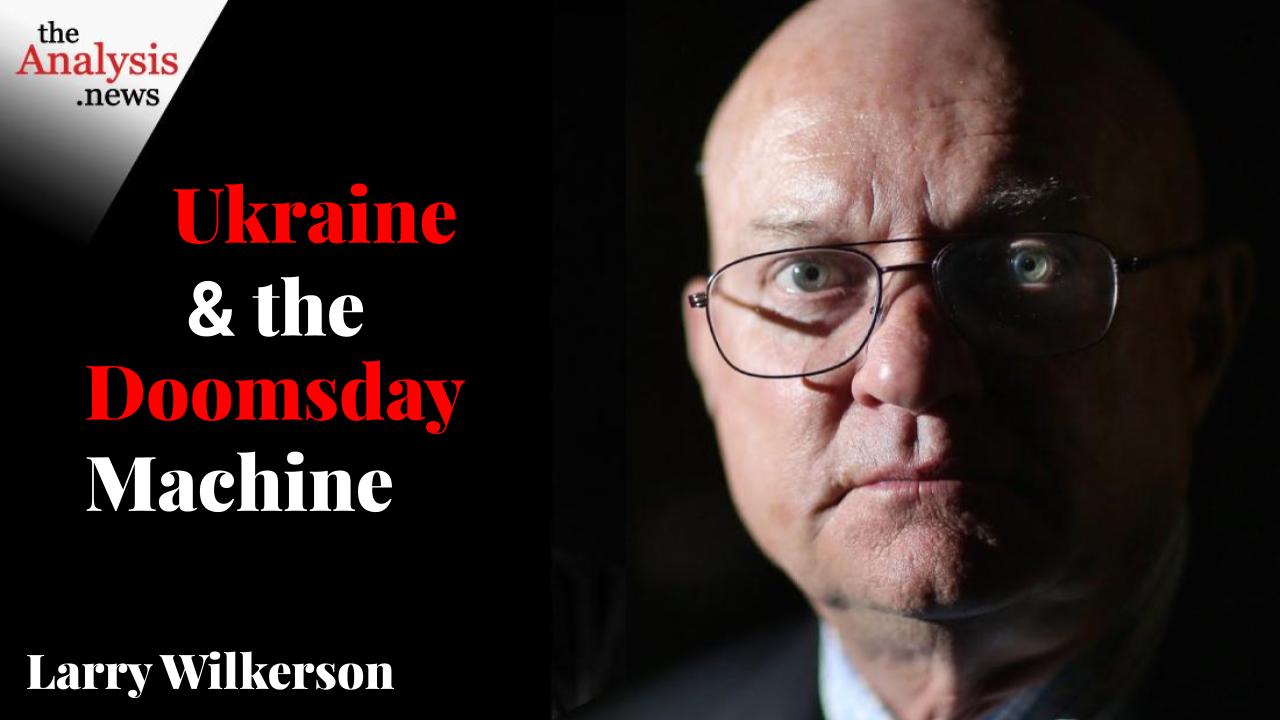


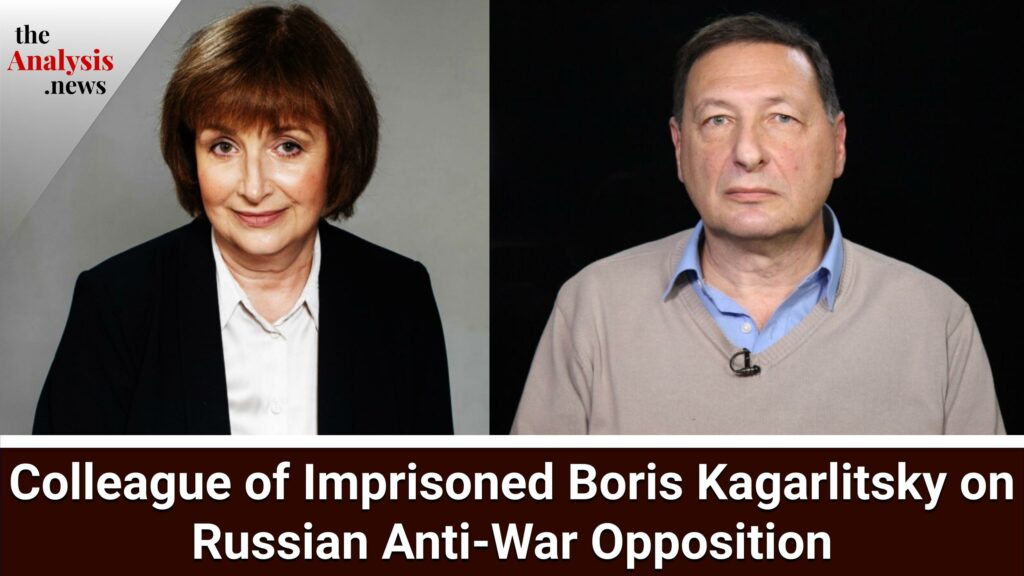
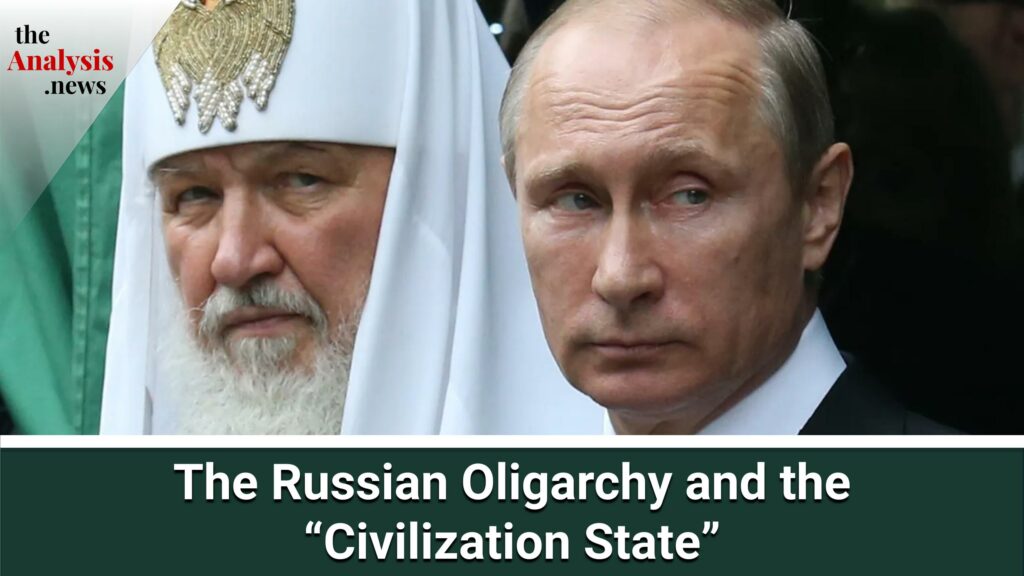
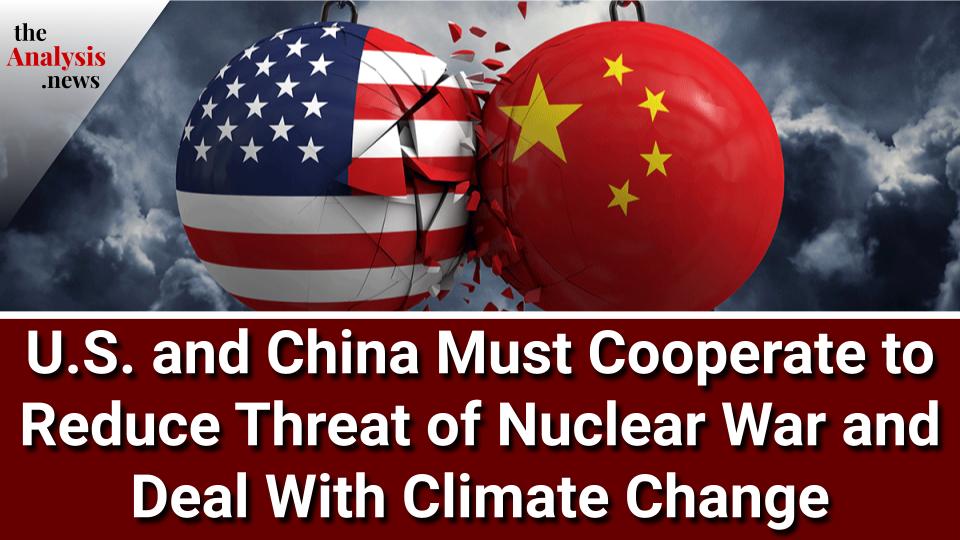
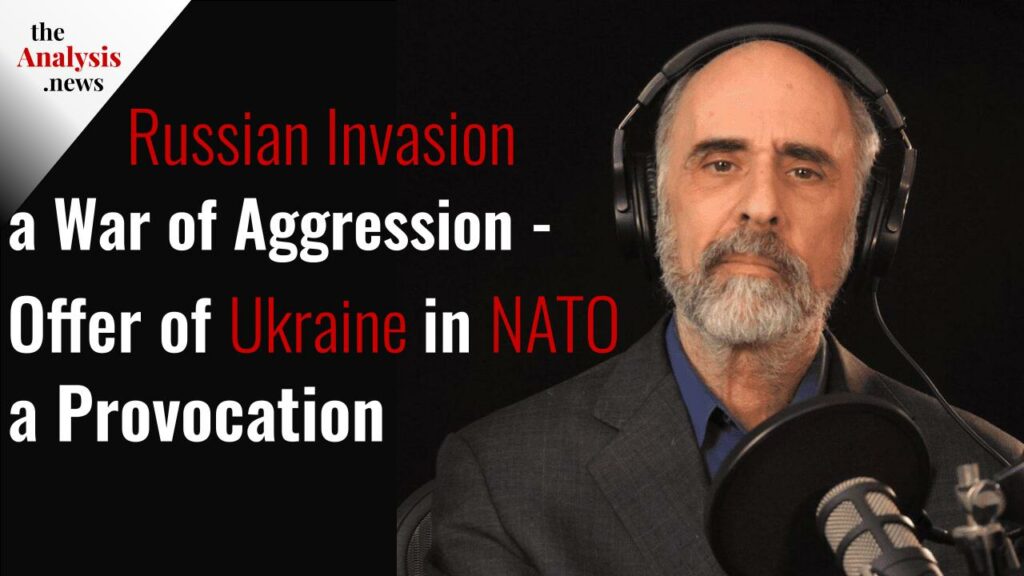
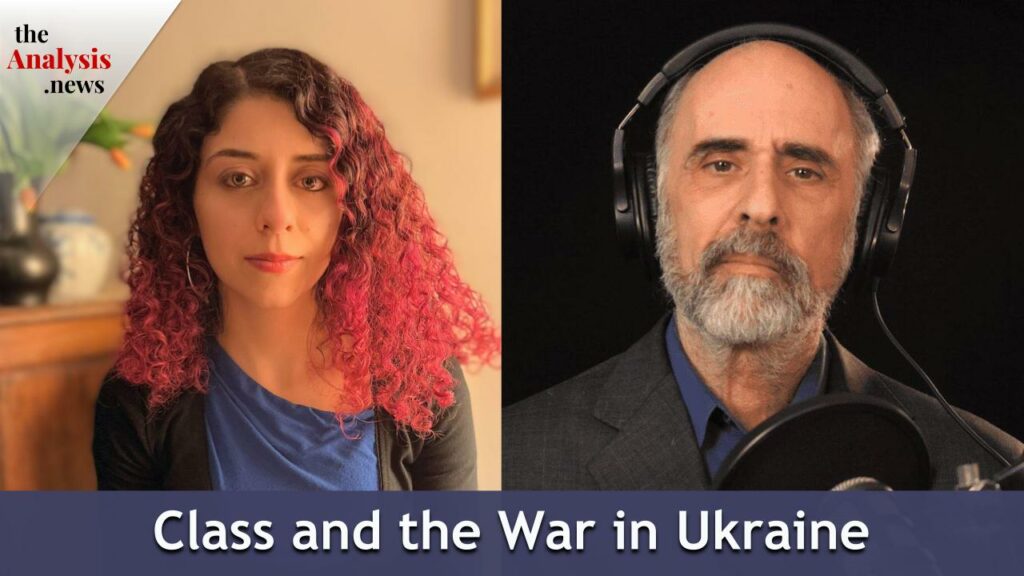
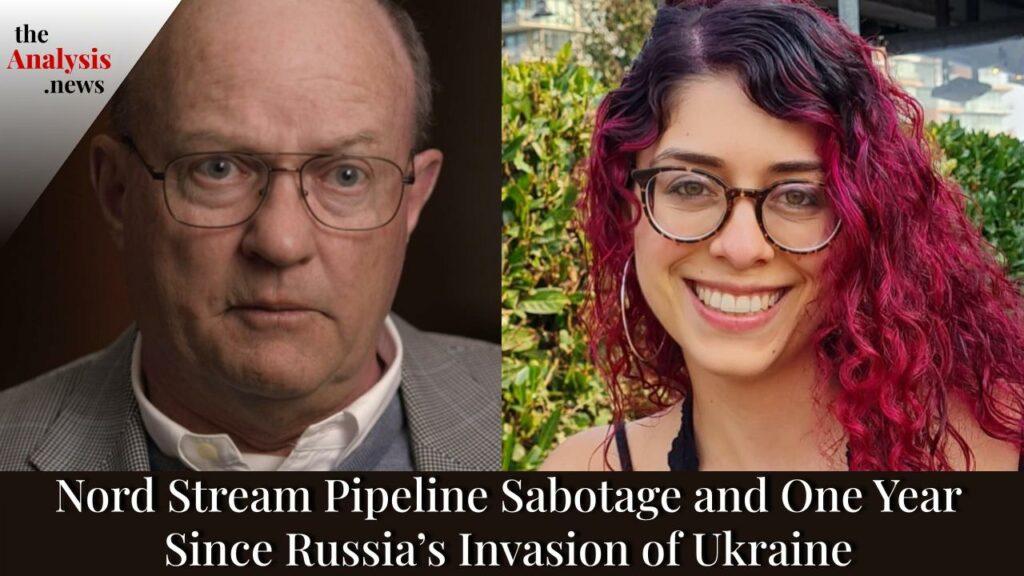
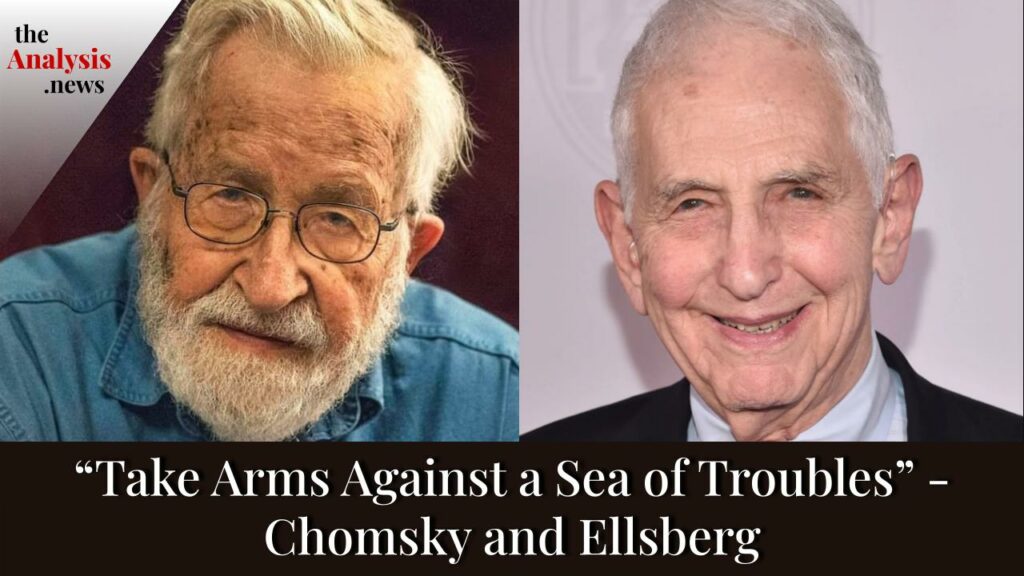
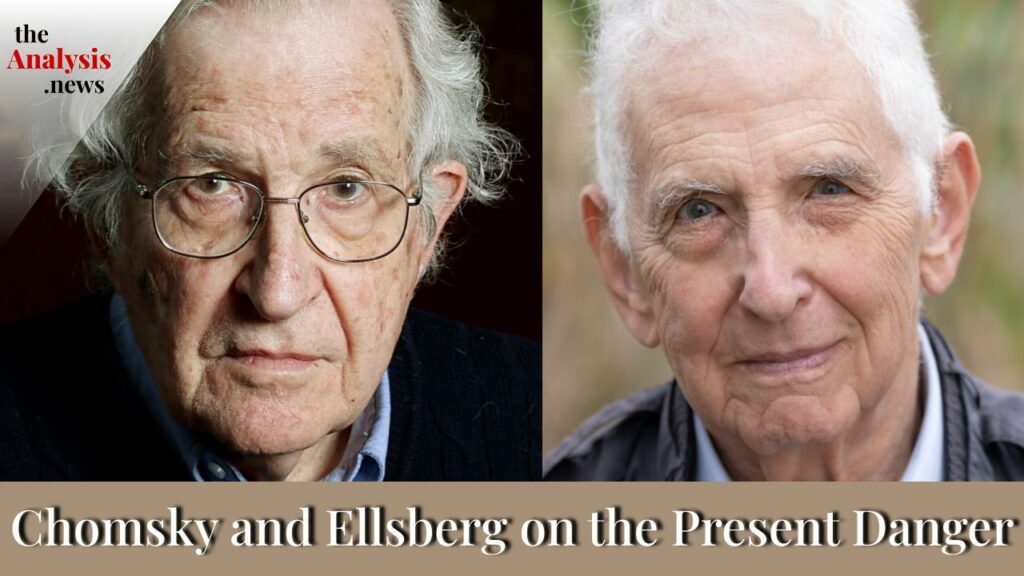
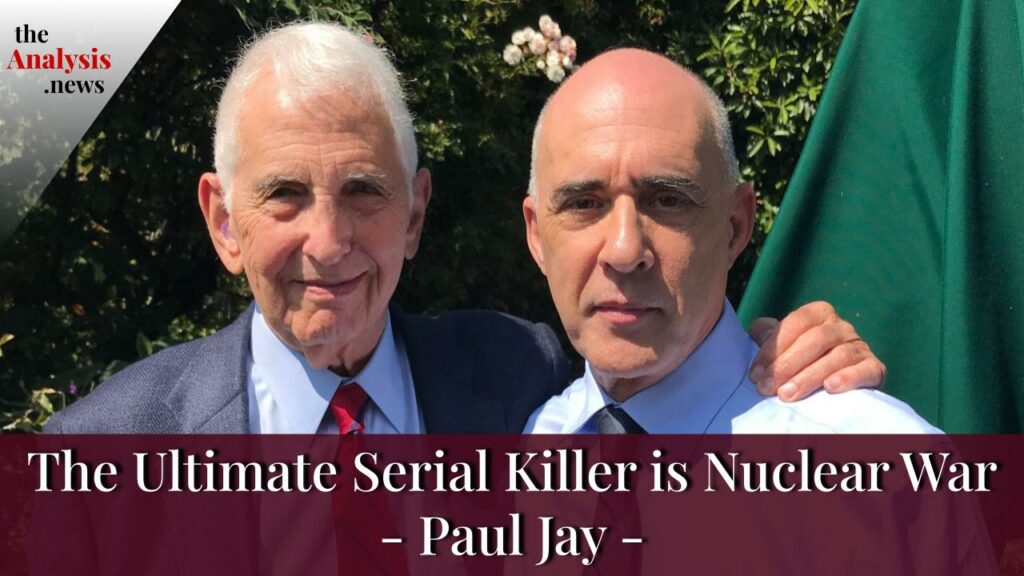

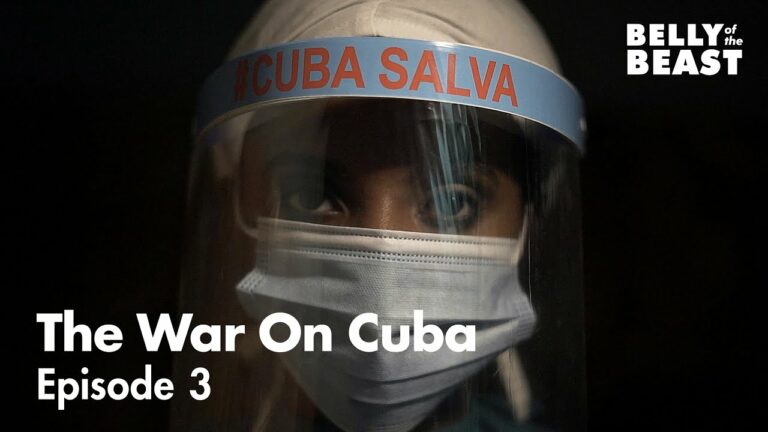
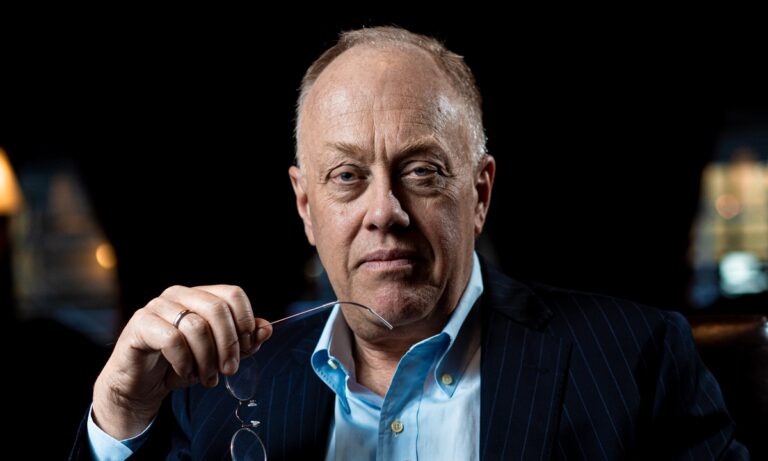

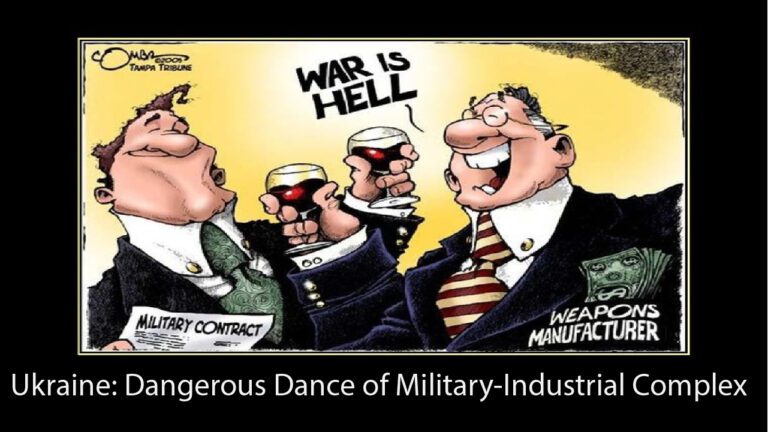


I’ve always maintained that when (not if) the US administration’s back is against the wall they will retaliate with nuclear war regardless of the consequences. If we can’t control the planet, no one will is unfortunately a prevalent sentiment in much of the American psyche.
‘When (not if) the US administration’s back is against the wall they will retaliate with nuclear war regardless of the consequences. If we can’t control the planet, no one will is unfortunately a prevalent sentiment in much of the American psyche.’ That may be and probably is the sentiment of the US govt psyche, more specifically the psyche of our military industrial complex which unfortunately still has far too much control of our foreign policy, but it is not in the psyche of the American people. Unfortunately we have failed to regain control of our country. Donald Trump was trying to help us do that but the propaganda and brainwashing and lies of the MSM and the stolen election thwarted our attempts and yes, it was stolen, If you truly believe that Biden, who sat in his basement through the campaign and could not draw a room full of people when he did go out on the campaign trail, received 81 million LEGAL votes from live legal voters who voted only once, more than Obama, and more than any presicential candidate in the history of our country, then I have some ocean front property in Nebraska to sell you.
> when (not if) the US administration’s back is against the wall they will retaliate with nuclear war
I wish we could rule that out.
Does anyone bother to go to the White House dot Gov website to send a message to Biden?
One thing about Biden and his age is that I think he cares more about following the dictates of the
military or intelligence services ( or whatever has planned and pushed for this war so hard for so
long ) than he does about the Presidency – so I wonder how much influence voters really have
on Biden?
Hi Paul,
Would you consider the following interviews on subjects where there are conflicting narratives, both from mainstream US media, but also Russian media (RT) and independent sites like yourself:
You did an excellent series of interviews with Alexander Buzgalin to help educate about Putin (https://theanalysis.news/is-putins-rule-a-dictatorship-rai-with-aleksandr-buzgalin/). You’ve talked after the invasion how crazy Putin is based on making the NATO alliance stronger than ever, threatening nuclear retaliation if NATO intervenes, as well as strange TV appearances where he humiliates his ministers. Could you have an updated interview on Putin’s leadership? He seemed to genuinely try to negotiate peacefully with the US over NATO and Ukraine only to be rebuffed, and whether he could or should have done differently, he gave a public video on his rational for sending military into Ukraine (see:http://en.kremlin.ru/multimedia/video/section/speeches/by-date/24.02.2022). Did Putin behave rationally in some respects?
…
Could you do an interview with perhaps multiple experts on the military situation in Ukraine? Is the Russian military demoralized, using poorly trained conscripts, broken equipment and being outmaneuvered by Ukrainian forces? Is Russia on the verge of annihilating eastern Ukrainian forces, and using western Ukraine as a firing range for its missiles as some narratives suggest? How can we know what is really happening on the ground?
…
Finally, what would be successful strategies to deal with US aggression, both for China, Russia and other parts of the world (Venezuela)? Russia did not have to invade, but how could or should it have acted to protect itself from US/NATO expansion and hegemony?
Paul:
Part of the problem with discussions like this is so much is speculation: looking at the available information and drawing different conclusions, assuming we even agree what information is valid. I don’t think many of your readers would disagree about the dangers of nuclear war, that there would be no winners. However, your analysis of Putin is pure speculation, as is mine. Let’s look at the US: “If” the conflict can be confined to a conventional war, the US will keep supplying drones, missiles and anti-tank weapons as long as there are Ukrainians willing to fire them. From the point of view of the arms industry, this is a win and rational, from my view and yours, insanity and risking escalation to nuclear war.
Another problem with speculation, is that in the propaganda war between the US and Russia, making claims about the intentions and objectives of Russia can help US propaganda (or vice versa). I have no way to confirm that Putin wants to ensure a legacy by conquering Ukraine, but there’s a number of anomalies that dissuade from this. Why did Putin try to de-escalate in Ukraine, hosting European leaders like Macron before the invasion? Was this all an elaborate ruse on part of Russia? Why has the Russian invasion been so slow, given Russian air superiority? Why have the Russians tried to provide evacuation corridors from cities like Mariupol, and why have people been unable to leave? In conversations like this it comes down to critical reason and what information you trust: can state news agencies like BBC or CBC, or former ministers in Europe commenting on Putin’s mental state be trusted?
From what I know of the history of Ukraine up to the Maidan Revolution and beyond, the US has tried to impose IMF austerity programs on Ukraine, helped create conditions for fascism (similar to neo-liberal policies in US giving rise to Trump), and now supports neo-nazi elements in Ukrainian govt and military.
I blame the US for this crisis, because as you pointed out above they have an economy 20x that of Russia and is the strongest player in Ukraine. The US has financial (MIC, weakening of Russia and access to its resources) and geo-political reasons (China, US as declining global hegemon) to actively prevent peace in Ukraine. If the US did not provoke a proxy war in Ukraine, they are in the early stages of creating one with China over Taiwan and the Solomon Islands (off coast of Australia) of all things.
Could Russia have dealt with US aggression (via NATO or CIA propaganda operations) by not entering Ukraine? You’ve argued that an imminent attack on Donbas by Ukrainian forces was unlikely, but Russia claims otherwise. Perhaps Russia could have waged espionage, regime change in Kiev and supplied weapons, special forces to Donbas in an operation similar to what CIA has carried out? Would that have ensured Russia keep access to Crimea, or protected the Donbas from the neo-nazi battalions? How do other countries, like Russia or China, protect themselves from the United States?
p.s. the formatting of the text on your website seems to have changed; I preferred the older format, where the text doesn’t stretch across the screen.
In a way, this Ukraine epic was ‘just made for’ the scholarly Larry W,.. as Gulf War 1 was ‘just made’ for our late General Schwarzkopf, kin to High Plains Drifter(1973) actress Marianna Hill (née Schwarzkopf).
A point that seems to jump out for me is how the increasing dollars we’re committing to Ukraine (this week 33 billion!) is a form of escalation that mirrors our gradual involvement in Vietnam. Of course, it’s dollars not soldiers (so far) but the dynamic is the same, it transforms a non-vital interest into a perceived vital interest and there is no backing out. This just reinforces your overall analysis with Wilkerson as to how locked into this cycle of doom we are.
Thank you for the interviews on Ukraine. There are few places available for sane analysis.
We have sent soldiers- hundreds of special forces
I don’t think Putin has changed as much as people think he has, although his opinion of the ability of the west to cooperate certainly has. I think the big difference came around 2010-2011 with big shifts in western propaganda taking it back to a model present in the 1970s to early 1980s, with the election of the Conservatives in the UK, as they began putting their own people into the BBC, running operations in other countries, including Ukraine and Russia, to shape media coverage, and Hillary Clinton in the State Dept was also a major driver in a large change in media manipulation. We only started to find out in 2016, thanks to the release of Clinton’s “missing” emails, just how substantial this has been.
Paul, I wonder if you could secure an interview with John Stockwell if he is still in good health. He was a CIA officer who ran many propaganda campaigns, pushing completely false stories out into the media, became disillusioned and then whistleblower about CIA activities, writing the book “In Search of Enemies”.
Also, if you drop me an email, I’ll let you know anything obvious for the SPAM filtering issue (as this is within my area of profession). Just a one liner is fine, I’ll be looking at the contents of the hidden part of the email to let you know any changes in server configuration that can help. This is something I do to help clients get their emails to their customers.
Col. Wilkerson tells us that Pres Putin has principally accomplished, however clumsily, in some cases most of his objectives. “Principally, clumsily, in some cases, most”, so many qualifiers! I should not have expected the Russian leader to be described in the west as reluctantly having used military power in the most careful way to avoid civilian casualties and the destruction of cities in order to accomplish minimal goals necessary to protect Russian security. But that is what he did!
To make Putin less the image of a successful leader of a limited engagement to push NATO back from Russia’s doorstep and more the image of a desperate old man concerned about his legacy and what the US is doing to destroy it, a former Finnish prime minister is mentioned as having concerns that Putin would use nuclear weapons to avoid accepting anything “that even looks like a defeat.”
The defeat really to be concerned about is that of the US neocons who in 2014 started this war against Russia, with Ukraine as its proxy. Can the US’s desperate old man in the White House control them?
Putin criticized Lenin for his idea of building the Soviet Union as an association of autonomies. “It was an atom bomb planted under the building called Russia. After a while it went off. There was no need for a world revolution, either,” he said. NATO is such an association. It will self-destruct.
Let us discuss nuclear weapons. Try out Senator Roger Wicker. He wants to use them on a first strike basis. What about him, Colonel? He is a Republican! Russia does suspect that NATO is considering a first strike, after all Poland has nukes, thanks to Trump.
Please discuss and justify the doctrine of regime change.
NATO already is economically destroying itself. Oil, gas, wheat, potash? Russia provides resources….and, surprisingly very competent science. Despite every sanction, Russia is doing quite well. And Putin is very very popular. He really does not care for the oligarchs nestled around the world.
In London I am sure those oligarchs are unhappy to see their yachts go. They are holdovers from Yeltsin and Clinton. I always find it amusing when people cite their displeasure as evidence Putin is in trouble.
Do some research on what is happening economically to the West. Does the U.S. make anything?
List the news outlets that billionaires run. Talk about tent cities, the poor, the widening gap between rich and poor.
Russia is weathering the sanction storm. Check the ruble to dollar exchange—below 70.
Western sports events now deny Russian participation. Hitler did not deny participation to inferior races. According to Jesse Owens’ autobiography, Hitler did wave to him, acknowledging the performance.
Thankfully, you, Paul, do allow contrarian opinions, In the U.S. Debate is not allowed. We all know it.
What about the woke insanity? Trans-women, biologically male, are now allowed into women sports, female prisons, and female safe houses. Please discuss this nonsense. Even the illustrious, ex-lobbyist, now Secretary of Defense supports it. When confronted, he certainly did bob and the weave.
This war did not have to happen: Minsk Accords, neutral Ukraine, dismantling of Nazi battalions. Why not acknowledge the bio research facilities? The list goes on. All this while the U.S. waves the flag and defends Ukrainian freedom. Kiev does NOT allow freedom of thought. T.V. stations shut down; opposition jailed.
Now there is talk of a global NATO.
To cite Finland as an expert on Putin is hilarious. This is the Finland that not too long seized art lent from Russia to Finnish museums.
Put Scott Ritter up against Wilkerson. Have a real debate.
Much obliged – a thoughtful analysis.
***This 2016 documentary explains the need for an intervention into the Ukraine-Donbass war
(the Ukraine targeted Donbass civilians; the Donbass targeted the Ukraine military):
Donbass-2016: Documentary by Anne-Laure Bonnel
https://www.youtube.com/watch?v=b8j0tJsKltg
***This montage gives the real reason for WW-III: Weapons 4 Ukraine (the MIC)
https://www.youtube.com/watch?v=N3pnFR7DeZA
I share the incredulity that the lessons of 1962 and the Cold War are lost to to the phenomenon Kundera said was Organized Forgetting.
But the US departed the realm of reason long ago — no lessons learned since 1945, right? Except to keep losing wars going to make profits for the weapons of war industry which Smedley Butler said was a racket! Even before 1945!
Solomon writes in Ecclesiastes that “there is nothing new under the sun.” So every generation has to make the same (nukukar) mistakes of the previous one … the previous Cold War … and Santayana is correct that one must know history in order to avoid repeating it. The Solomon/Santayana conundrum.
The US has been a Genocidal Apartheid Christian Fascist Aggressive Militarist Megalomaniacal Europeanist White Colonial Settler Nation from the beginning … and to ask for reason and morality and ethics now at this late date and at this time on the doomsday clock seems an act of futility.
And to judge Putin or Xi in light of the ideals of American history just listed is arrogance, blindness, hypocrisy and hubris of the very worst sort.
Paul why don’t you advocate for an internationally supervised referendum in the US ? The worst elections happen here — and legally — and NO Russian meddling needed although there is PLENTY of Saudi and Israeli interference — as in 2000 and 2016 in this arsenal of democracy.
Why don’t you wonder where the Americans are going to get the money for $1 T nuclear “modernization” especially once the petrodollar is regime changed and the US credit card is cut up?
And these are NOT the same -/ you again make a false equivalence … a world w/out Russia v a world w/out US Empire hegemony. Jesus Christ, Paul you have so internalized American Exceptionalism and Cia narrative that it froths out in unexpected ways.
Edit thyself!
Do you actually watch my interviews? Have I ever said I consider U.S.elections democratic or fair? Never. I’ve reported on Saudi and Israeli interference many times. Why don’t I ask where the U.S. will find the money to modernize its nukes? Because they have an economy that’s almost twenty times that of Russia, and that’s before the recent sanctions. There are 98 trillion dollars of assets in private hands in the U.S. according to Brookings. Also the world’s reserve currency. I don’t think they face the same problems as Russia re paying for nukes. The issue isn’t a world without Russia or U.S. hegemony. They are both parts of the global monopoly capitalist system. Of course, the U.S. commits crimes and atrocities on a global scale, while Russia does it domestically (Chechnya) and regionally (Ukraine). Just because the U.S. is the greater international rogue state, doesn’t mean we shouldn’t tell the truth about Russia.
*LOL* I think people hear what they want to hear! The equivalence you draw as perfectly valid, as it was an equivalence in the way that individuals think. Americans are as human as Russians, any increase in danger comes only from an increase in power. It is right to point out that Putin’s attitude towards his country is not an anomaly.
Quick aside: I think most of the cost of the “modernisation” is that you need new plutonium… the radioactive decay means nukes have a much shorter shelf life than other bombs. I think we say “modernisation” because we don’t really want to be saying “some of our current nukes might mostly be duds by now”, and we don’t want to say that the new nukes we spend all the money on will also have short shelf lives. I’m quite happy with them not working, as long as well all think that the OTHER guy’s WILL work, we perhaps won’t send so many people to die. At least, not while wearing our flag.
I agree with all that Paul Jay wrote in reply to Thomas Prentice, except for Chechnya and Ukraine. The suppression of Chechnyan independence is a case of a state defending its integrity against rebellion. One may argue that the harsh measures used were crimes, but then no state can exist if rebellions within it cannot be suppressed. Far better if there had been an international arbiter to whom the Chechnyans could have made their case, but as John Mearsheimer makes clear there is none. States have no such appeal. In the Ukraine war, which should be called the Russo-US War in Ukraine (with Ukraine the US proxy), Russia as a state had to defend itself against the increasingly its hostile European border with the US as instigator. At the point where the critics of Russia would concede that the US threat was imminent, it would be too late for Russia. It would be facing a western wall of armed hostile states and southern enemies of Georgia and possibly Turkey. Russia had to act as a state to preserve itself.
So long as there is no system of international law on which states may rely for their defense, acts by states cannot be viewed in the same way as acts by individuals.
Amazing episode. And bizarrely amazing that the viewpoints here come close to what is now prohibited on the major corporate social media platforms Twitter and Facebook, even though they are totally reasonable and are not in any way intended to “help” Russia. This might be the best solution published anywhere, or it might not.
This episode is a great example of why Paul Jay’s show is so amazing. Jay is solid, so he SEEMS radical, but only because the truth is radical. He never goes off the deep end, But does his very best to tell it like it is and cut through the incredibly THICK brainwashing that is shackling all of us as human beings and as revolutionaries.